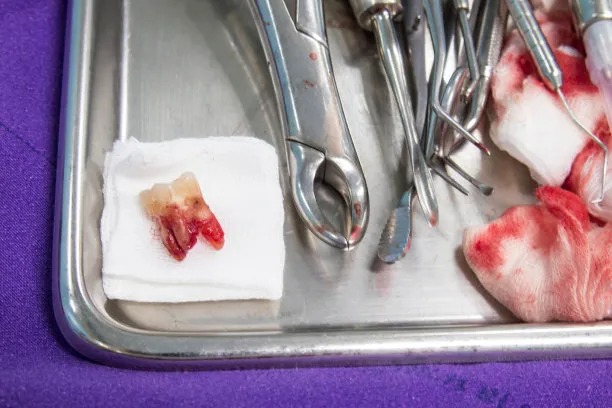Summary: Dental implant surgery can significantly improve oral health and aesthetic appearance, but it requires careful consideration and preparation. This article discusses essential factors and precautions that prospective patients should contemplate to ensure optimal results and expedite recovery. From understanding the procedure and selecting the right practitioner to assessing personal health conditions and following aftercare guidelines, each element contributes to a successful implant journey. By addressing these crucial aspects, patients can enhance their chances of satisfactory outcomes and restore their confidence in their smile.
1. Understanding the Dental Implant Procedure

Before undergoing dental implant surgery, it is vital for patients to have a thorough understanding of the procedure itself. This includes knowing what dental implants are, how they are placed, and what materials are used. Typically, implants consist of titanium posts that are surgically inserted into the jawbone, serving as artificial roots for replacement teeth. Knowledge of the entire process helps to alleviate anxiety and prepares patients mentally for the journey ahead.
Additionally, patients should inquire about the different types of implants available, as each comes with specific benefits and potential drawbacks. For instance, some implants may be more suited for those with significant bone loss, while others may provide quicker recovery times. Discussing these options with the dentist enables well-informed decision-making based on individual needs.
Finally, understanding the timeline of the surgery and recovery is crucial. Most patients can expect a multi-step process, which may include healing periods between stages. This awareness helps to manage expectations, preventing frustration and anxiety related to the recovery time.
2. Choosing the Right Dental Practitioner
Choosing the right dental practitioner is one of the most crucial steps before undergoing implant surgery. Prospective patients should look for a qualified and experienced oral surgeon or periodontist who specializes in implants. Researching their credentials, such as certifications and past surgical success rates, can offer reassurance that the practitioner is skilled and knowledgeable.
Moreover, scheduling a consultation can provide insights into the dentists approach and communication style. During this appointment, patients should feel comfortable asking questions about the process and any concerns they might have. A competent practitioner will not only have technical expertise but also demonstrate empathy and a dedication to patient care.
Finally, seeking recommendations from friends or family, or consulting online reviews, can also help in making an informed choice. Understanding the experiences of others can provide valuable information about different practitioners and what to expect during the surgery and follow-up care.
3. Assessing Personal Health Conditions
An important consideration before undergoing dental implant surgery is the assessment of personal health conditions. Patients should disclose their complete medical history to their dentist, including any existing medical issues, medications, and lifestyle factors such as smoking or chronic diseases. These elements play a significant role in the healing process and overall surgical success.
Patients with uncontrolled diabetes, for instance, may have a higher risk of complications during the healing process, necessitating a more cautious approach. Likewise, individuals taking certain medications may need to make adjustments prior to the surgery. Comprehensive pre-operative assessments, including X-rays and potential additional tests, are necessary to ensure a well-planned procedure.
Lastly, discussing any lifestyle changes, such as quitting smoking or improving diet, can prepare both the dentist and the patient for a more successful surgery. These changes enhance oral health and increase the chances of a smooth recovery, setting the stage for positive long-term results.
4. Following Post-Surgery Aftercare Guidelines
Post-surgery aftercare is vital for ensuring that dental implants integrate well with the bone and tissues, ultimately leading to successful outcomes. Patients should closely follow their dentists aftercare instructions, which may include guidelines on pain management, dietary restrictions, and oral hygiene practices. Adhering to these recommendations can significantly impact recovery speed and comfort.
After surgery, patients might experience swelling or discomfort, which is normal but should be effectively managed through prescribed medications. Additionally, its essential to observe dietary restrictions, opting for softer foods and avoiding hard or chewy items that could disrupt the implant site.
Regular follow-up appointments with the dentist are also crucial for monitoring healing and addressing any issues that may arise during recovery. Consistent communication between patient and dentist can mitigate potential complications and facilitate a smoother healing process.
Summary:
In summary, preparing for dental implant surgery encompasses understanding the procedure, selecting the right practitioner, assessing health conditions, and following aftercare guidelines. Each consideration plays a pivotal role in achieving optimal results and a successful recovery. By identifying and addressing these key factors, patients can enhance their experience and results.
This article is compiled by Vickong Dental and the content is for reference only.
Vickong Dental
Vickong Dental is a large medical group established in Hong Kong in 2008 by professors from well-known medical universities in Guangdong and Hong Kong, as well as medical doctors from key national '985' universities (including Master's supervisors and senior professors). The chain of branches brings together expert dentists with PhDs and Master's degrees from Hong Kong and Mainland China, committed to providing high-quality dental treatment.
"Vickong Dental Practices the University Motto of 'Healing and Serving Society,' with a Stable Operation for Sixteen Years. It Has Been honored with Hong Kong Enterprise Leaders's Choice,' and is a Global Trusted Implant Center for the Nobel Implant System. Recommended by Hong Kong Metro Broadcast and Guangdong Television, it Serves Customers from Over Thirty Countries and Regions, Gaining the Trust and Favor of Citizens from the Guangdong-Hong Kong-Macau Greater Bay Area and Surrounding Cities.

Thousands of customers' unanimous praise
The most recognized and highly recommended dental service by customers in the Guangdong-Hong Kong-Macau Greater Bay Area
We Ensure You Receive Detailed Care and Attention Here
Hong Kong standards, Shenzhen prices, Your Trusted English-speaking dentists

Vickong Dental Medical-Grade Instrument Disinfection Process
Vickong Dental Medical-Grade Instrument Disinfection Process

Vickong Dental Chain: A Warm and Comfortable Environment for Treatment






Appointment Hours

Q&A
Why choose Vickong Dental?
Vickong Dental practices the university motto 「Medicine to Benefit Society」, with each branch bringing together highly qualified dentists with doctoral and master’s degrees from Hong Kong and the Mainland, and has maintained seventeen years of steady operation。Recipient of 「2024 Hong Kong Enterprise Leaders Brand」, 「2025 Hong Kong Enterprise Leaders Brand」, a Nobel Biocare Global Trusted Implant Center, and a brand recommended by Metro Radio Hong Kong and Guangdong TV。
To date, we have served customers from more than thirty countries and regions,earning exceptionally high word-of-mouth recognition and trusted recommendations from residents across the Guangdong-Hong Kong-Macao Greater Bay Area and surrounding cities
We have eight major branches in Zhuhai、Shenzhen,and a consultation and service assurance center in Hong Kong,so you can book a free consultation at any time for any questions,which is very reassuring.
If I do not accept the quotation after the CT scan, will I be charged??
No! As long as the actual treatment has not started, you will not be charged any fees.
Will there be any additional charges during the treatment process?
No, there won’t be any additional charges. Before treatment begins, we will clearly explain the treatment plan and its corresponding fees. Only after the patient agrees and signs the consent form will we proceed with the dental service.
Can I pay in Hong Kong dollars?
Yes. Vickong Dental accepts payment in Hong Kong dollars. The amount will be converted based on the exchange rate of the day, and the applicable rate will be clearly communicated to you in advance.
Can I reschedule my appointment at any time?
Yes. Please contact us via **WeChat** or **WhatsApp** as early as possible, providing your original appointment time and details, along with your preferred new date and time slot for rescheduling.













